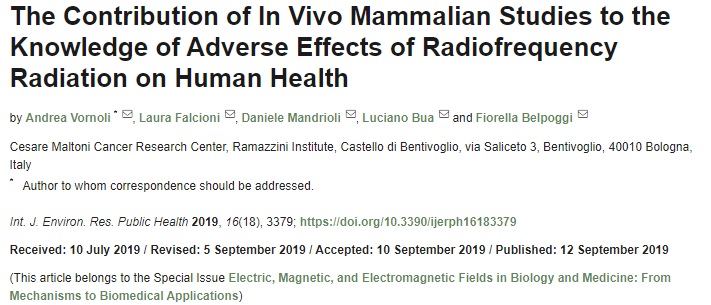
Abstract
The proliferation of cellular antennas and other radiofrequency radiation (RFR) generating devices of the last decades has led to more and more concerns about the potential health effects from RFR exposure. Since the 2011 classification as a probable carcinogen by the International Agency for Research on Cancer (IARC), more experimental studies have been published that support a causal association between RFR exposure and health hazards. As regard cancer risk, two long-term experimental studies have been recently published by the US National Toxicology Program (NTP) and the Italian Ramazzini Institute (RI). Despite important experimental differences, both studies found statistically significant increases in the development of the same type of very rare glial malignant tumors. In addition to carcinogenicity, reproductive organs might be particularly exposed, as well as sensitive to RFR. In this work, we reviewed the currently available evidence from in vivo studies on carcinogenicity and reproductive toxicity studies in order to summarize the contribution of experimental research to the prevention of the adverse effects of RFR on human health.

PDF: ijerph-16-03379
